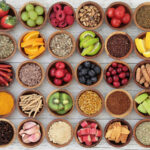The global food system is facing the big issues of our historical period, malnutrition, climatic changes, loss of biodiversity, resource scarcity and the necessity to feed a growing and ageing population, urbanization, and food waste.
To overcome these challenges, a transformation of the food system is required, towards sustainable and healthy diets, to guarantee the need of food both in quality and quantity for everyone.
“Farm to Fork” strategy and the European Green Deal outline this new vision, which aims to follow multi-sectorial paths, required for a durable and deep change, where the food system, environment, society, health, economy, and governance are parts of the same framework, and every action produces effects on all its components.
The cooperation between the stakeholders is the first step to sensitize the civil society, the most important actor of the transition process. The “food environment” is essential to promote the consumption of sustainable and healthy foods and the food labelling should help consumers to make aware choices, through a clear and correct information about the nutritional aspects of the products and the environmental and social consequences.
The recommendations set out in the EC strategic advice mechanism opinion (SAM) (1) “towards a sustainable food system”, highlights the need for food to be considered as a common good and not just as a trading commodity, and that ‘business as usual’ is not a viable option as it will eventually endanger our natural resources, our health, the climate, and the economy.
Science and Innovation have been supporting studies on the development of a sustainable food system since several years and CNR scientific activities are perfectly integrated in the European strategic framework.
In this context CNR carries out research on: technologies to study plant response to biotic and abiotic stresses; improvement of livestock welfare and sustainability of farming and agro-silvo-pastoral systems; innovative methodologies in the field of food quality and safety, for the detection of mycotoxins, toxigenic fungi, microbial pathogens; development of novel food and alternative proteins; food intolerance, relationship between nutrition, health and diseases; protection of biodiversity and valorisation of national productions; improvement of products quality and shelf life; optimization of production processes, packaging and logistic, sustainable management of food productions and recycling of food waste.




